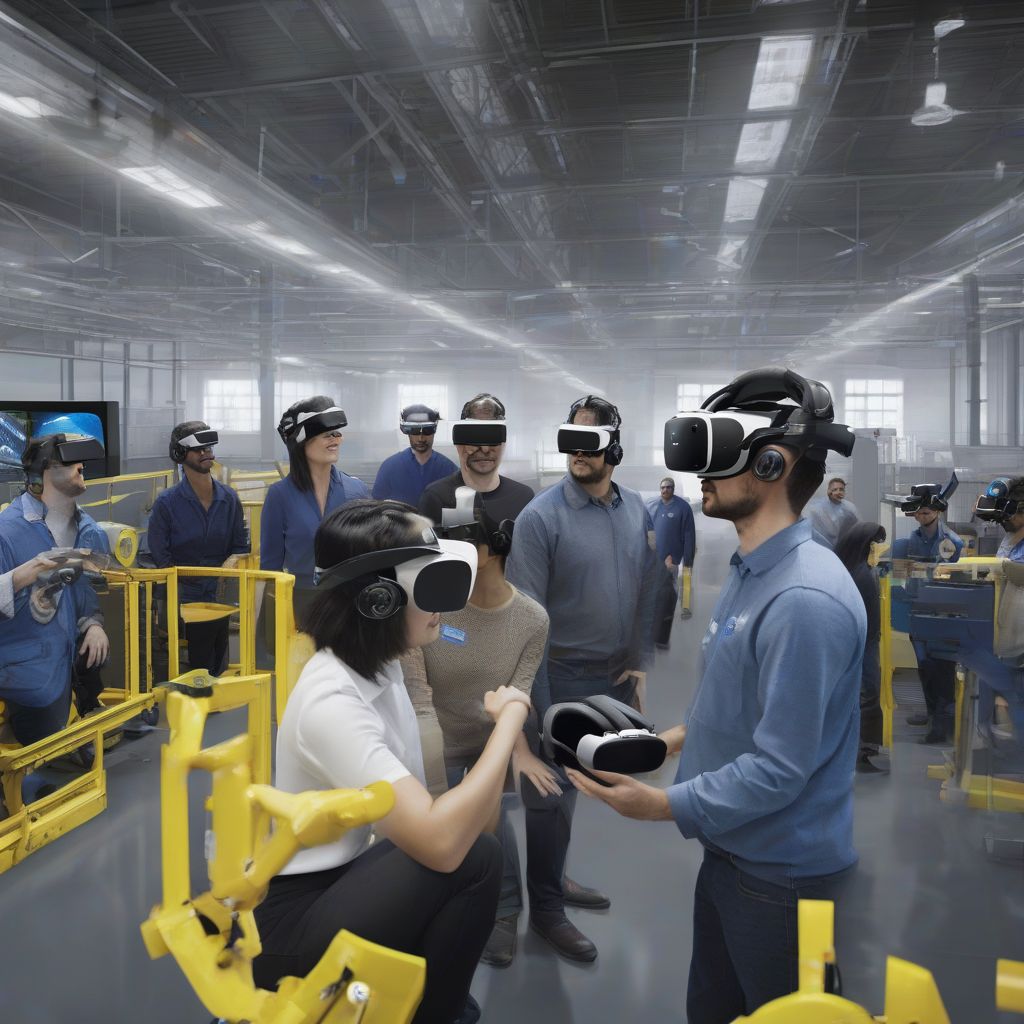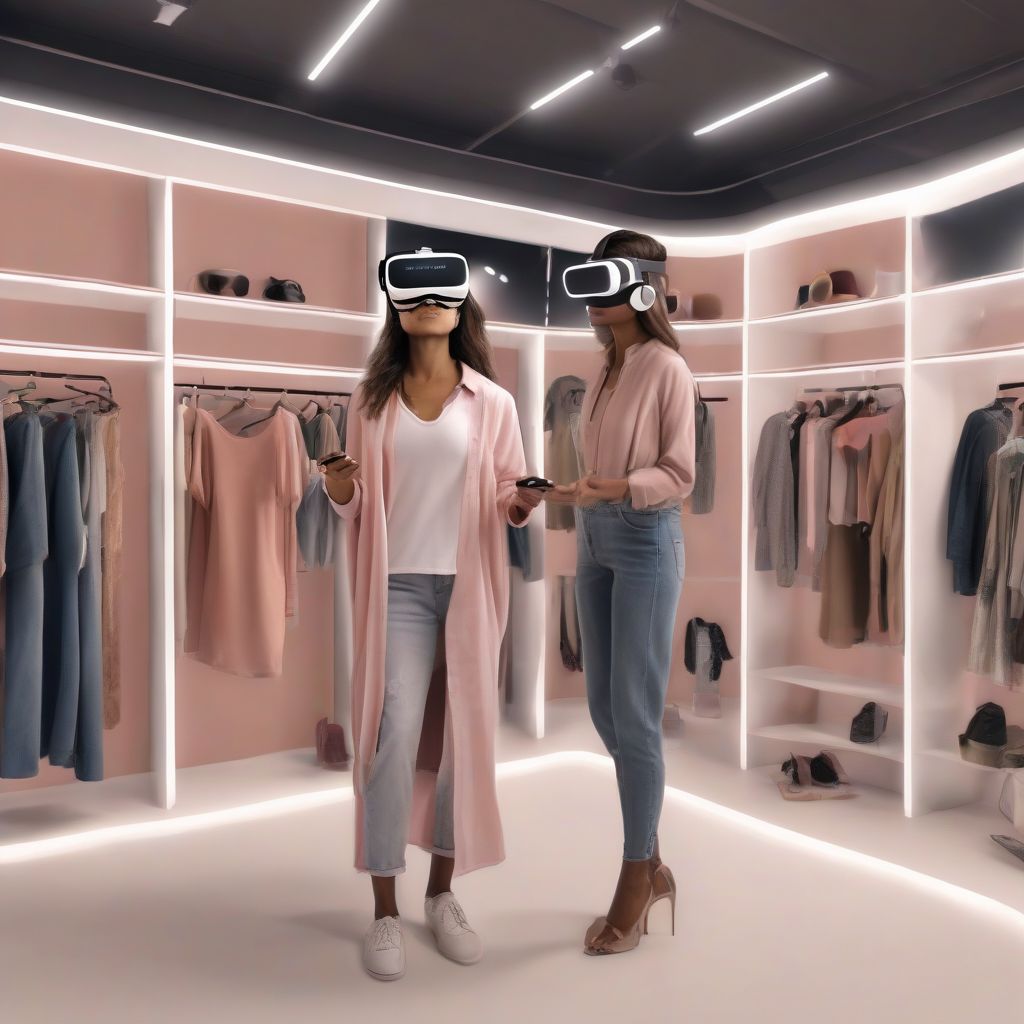Have you ever dreamt of stepping into a world beyond your wildest imagination, where the impossible becomes possible? While it might sound like a scene from a science fiction novel, this is quickly becoming reality, thanks to the power of virtual reality (VR). No longer confined to the realm of gaming, VR is rapidly changing the landscape of various industries worldwide. From revolutionizing employee training to transforming healthcare practices, the potential applications of this immersive technology seem limitless. Let’s dive in and explore how VR is transforming our world, one industry at a time.
Transforming Industries: A Deep Dive into VR Applications
1. Revolutionizing Employee Training and Education
Imagine learning to operate complex machinery not from a textbook, but by virtually stepping inside and interacting with it in a safe, controlled environment. This is the power of VR in training. Industries like manufacturing, energy, and aviation are leveraging VR simulations to provide employees with immersive, hands-on training experiences.
Benefits:
- Enhanced engagement and knowledge retention: VR training offers an interactive and engaging learning environment that surpasses traditional methods, leading to improved knowledge retention and practical skill development.
- Increased safety and reduced risk: By simulating real-life scenarios, VR training allows employees to practice handling critical situations without any real-world consequences, leading to a safer work environment.
- Cost-effectiveness: VR training eliminates the need for expensive physical setups and travel costs associated with traditional training programs, making it a cost-effective solution in the long run.
 VR Training Simulation
VR Training Simulation
2. Reinventing Healthcare: Diagnosis, Treatment, and Rehabilitation
The healthcare industry is undergoing a dramatic transformation with the integration of VR technology. From assisting surgeons with complex procedures to providing patients with immersive therapy sessions, VR is poised to revolutionize how we approach healthcare.
Benefits:
- Improved surgical precision: Surgeons can utilize VR simulations to practice complex surgeries in a virtual environment, allowing for better pre-operative planning and potentially reducing surgical errors.
- Enhanced patient care: VR can be used to create immersive experiences for patients undergoing physical therapy, helping them regain motor skills and mobility in a more engaging and motivating way.
- Effective pain management: Studies have shown that VR can be a powerful tool for pain management by diverting patients’ attention away from painful procedures or chronic conditions.
3. Reshaping the Future of Retail: Immersive Shopping Experiences
The way we shop is changing. VR is transforming the retail landscape by providing customers with immersive shopping experiences that blur the lines between the physical and digital worlds.
Benefits:
- Interactive product exploration: Customers can virtually interact with products, experiencing their features and functionality in detail before making a purchase decision.
- Personalized shopping journeys: VR allows retailers to create personalized shopping environments tailored to individual customer preferences, leading to a more engaging and satisfying shopping experience.
- Increased customer engagement: Virtual showrooms and product demonstrations can captivate customers and provide them with a deeper understanding of the products, ultimately driving sales and brand loyalty.
 Virtual Shopping Experience
Virtual Shopping Experience
[amazon bestseller=”virtual reality headset”]
4. Enhancing Design and Engineering: From Concept to Reality
VR is becoming an indispensable tool for designers and engineers across various fields. From architecture and automotive to aerospace and product design, VR enables professionals to visualize and interact with their creations in a virtual realm before bringing them to life in the real world.
Benefits:
- Improved design visualization: VR allows designers to experience their designs in a three-dimensional space, providing a more intuitive understanding of scale, proportions, and spatial relationships.
- Enhanced collaboration: Teams can collaborate on projects remotely within a shared virtual environment, fostering creativity and streamlining the design process.
- Reduced development costs and time: Identifying and rectifying design flaws early in the virtual stage can significantly reduce costly rework and accelerate product development cycles.
5. Transforming Entertainment and Media: Engaging Experiences
While VR has been a game-changer in gaming for years, its impact on entertainment and media extends far beyond. From immersive storytelling and virtual concerts to interactive documentaries and virtual tours, VR is revolutionizing how we consume content.
Benefits:
- Immersive storytelling: VR allows creators to transport audiences directly into the narrative, fostering a deeper emotional connection and a more memorable experience.
- New avenues for engagement: Virtual concerts and live events offer fans unique opportunities to interact with artists and experience performances in unprecedented ways.
- Democratizing access to experiences: VR can bring extraordinary experiences like virtual museum tours and travel to individuals who may not have the opportunity to experience them physically.
The Future of Virtual Reality: A World of Possibilities
The adoption of VR across industries is still in its early stages, but the potential for growth and innovation is vast. As technology continues to evolve, we can expect to see even more creative and impactful applications emerge across various sectors.
Key Takeaways:
- VR is no longer a futuristic concept but a transformative technology rapidly changing how we work, learn, heal, shop, and experience the world around us.
- From enhancing employee training and revolutionizing healthcare to transforming retail and boosting design processes, VR offers a myriad of benefits across industries.
- As VR technology continues to advance and become more accessible, we can anticipate even more groundbreaking applications and a world increasingly intertwined with the virtual realm.
What are your thoughts on the transformative power of VR? Share your insights and predictions for the future of this exciting technology in the comments below!
